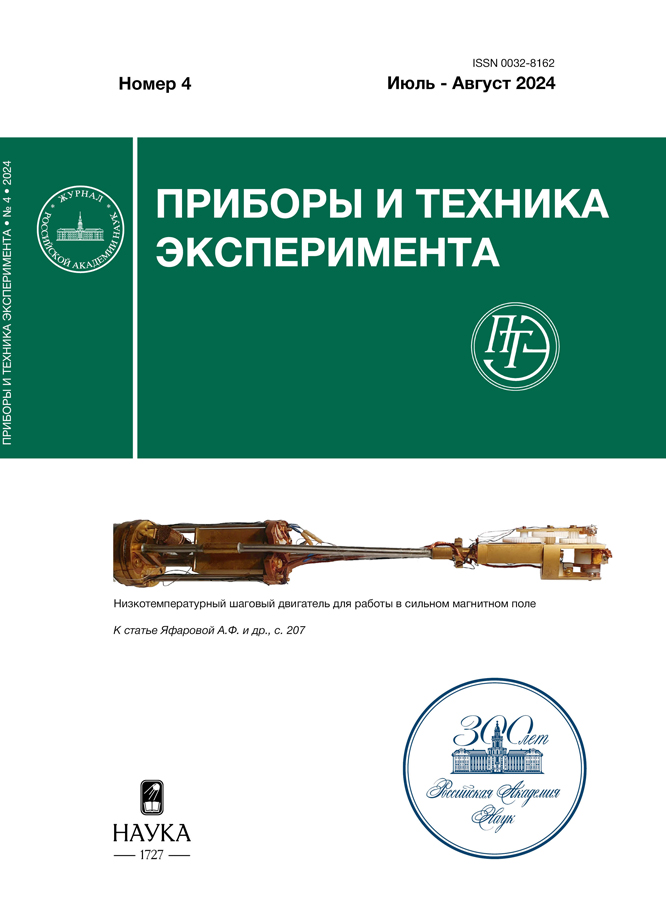Новая конструкция сцинтилляционных стрипов для модернизации детектора ДАНСС
- Авторлар: Свирида Д.Н.1,2
-
Мекемелер:
- Национальный исследовательский центр “Курчатовский институт”
- Физический институт им. П. Н. Лебедева Российской академии наук
- Шығарылым: № 4 (2024)
- Беттер: 69-78
- Бөлім: ТЕХНИКА ЯДЕРНОГО ЭКСПЕРИМЕНТА
- URL: https://freezetech.ru/0032-8162/article/view/681071
- DOI: https://doi.org/10.31857/S0032816224040087
- EDN: https://elibrary.ru/NYTCBQ
- ID: 681071
Дәйексөз келтіру
Аннотация
Стрипы из сцинтилляционной пластмассы со спектросмещающими волокнами являются базовыми элементами чувствительного объема детектора реакторных антинейтрино ДАНСС. Необходимость оптимизации конструкции стрипов определяется ограничениями чувствительности эксперимента к поиску стерильных нейтрино из-за невысокого энергетического разрешения детектора. Новая конструкция стрипов характеризуется существенно бόльшим световыходом и лучшей равномерностью светосбора. Обсуждается методология регистрации света одновременно с обоих концов волокон, которая удваивает фотостатистику и дает информацию о продольной координате события. Работа отражает детали и статус модернизации детектора вместе с результатами недавних пучковых испытаний. Рассматривается также ожидаемое влияние улучшений на чувствительность к стерильному нейтрино.
Толық мәтін
Авторлар туралы
Д. Свирида
Национальный исследовательский центр “Курчатовский институт”; Физический институт им. П. Н. Лебедева Российской академии наук
Хат алмасуға жауапты Автор.
Email: Dmitry.svirida@itep.ru
Ресей, Москва; Москва
Әдебиет тізімі
- Alekseev I., Belov V., Brudanin V., Danilov M., Egorov V., Filosofov D., Fomina M., Hons Z., Kazartsev S., Kobyakin A., Kuznetsov A., Machikhiliyan I., Medvedev D., Nesterov V., Olshevsky A. et al. // JINST. 2016. V. 11. № 11. P. 11011. https://doi.org/10.1088/1748-0221/11/11/P11011
- http://kuraraypsf.jp/psf/ws.html.
- http://www.surel.ru/silicone/76/.
- https://www.eptanova.com/sites/default/files/download_products/silver-shine_eng.pdf.
- Serebrov A.P., Samoilov R.M., Ivochkin V.G., Fomin A.K., Zinoviev V.G., Neustroev P.V., Golovtsov V.L., Volkov S.S., Chernyj A.V., Zherebtsov O.M. // Phys. Rev. D. 2021. V. 104. № 3. P. 032003. https://doi.org/10.1103/PhysRevD.104.032003
- Barinov V.V., Cleveland B.T., Danshin S.N., Ejiri H., Elliott S.R., Frekers D., Gavrin V.N., Gorbachev V.V., Gorbunov D.S., Haxton W.C., Iragimova T.V., Kim I., Kozlova Yu.P., Kravchuk L.V., Kuzminov V.V. et al. // Phys. Rev. Lett. 2022. V.128. № 23. P. 232501. https://doi.org/10.1103/PhysRevLett.128.232501
- Alekseev I., Belov V., Bystryakov A., Danilov M., Ershova A., Filosofov D., Fomina M., Kazartsev S., Kobyakin A., Kozlenko N., Kuznetsov A., Machikhiliyan I., Mamedov F., Medvedev D., Nesterov V. et al. // JINST. 2022. V. 17. № 04. P. 04009. https://doi.org/10.1088/1748-0221/17/04/P04009
- https://iftp.ru/cat/detektory-stsintillyatsionnye-plastmassovye/.
- http://www.uniplast-vladimir.com/scintillation.
- http://kuraraypsf.jp/pdf/YSSeries_201007.pdf.
- Alekseev I., Danilov M., Rusinov V., Samigullin E., Svirida D., Tarkovsky E.// JINST. 2022. V. 17. № 1. P. 01031. https://doi.org/10.1088/1748-0221/17/01/P01031.
- http://www.oku.ihep.su/index.php/uskoriteli/opisanie-uskoritelnogo-kompleksa.
- Alekseev I.G., Bordyuzhin I.G., Budkovskii P.E., Kalinkin D.V., Kanavets V.P., Koroleva L.I., Manaenkova A.A., Morozov B.V., Nesterov V.M., Ryl’tsov V.V., Svirida D.N., Sulimov A.D., Fedin D. A., Andreev V.A., Golubev V.V. et al.// Instrum. Exp. Tech. 2014. V. 57. № 5. P. 535. https://doi.org/10.1134/S0020441214050029.
- Alekseev I.G., Belov V.V., Danilov M.V., Zhitnikov I.V., Kobyakin A.S., Kuznetsov A.S., Machikhiliyan I. V., Medvedev D.V., Rusinov V.Y., Svirida D.N., Skrobova N.A., Starostin A.S., Tarkovsky E.I., Fomina M. V., Shevchik E.A., Shirchenko M.V. // Phys. Part. Nucl. Lett. 2018. V. 15. № 3. P. 272. https://doi.org/10.1134/S1547477118030020.
Қосымша файлдар



















